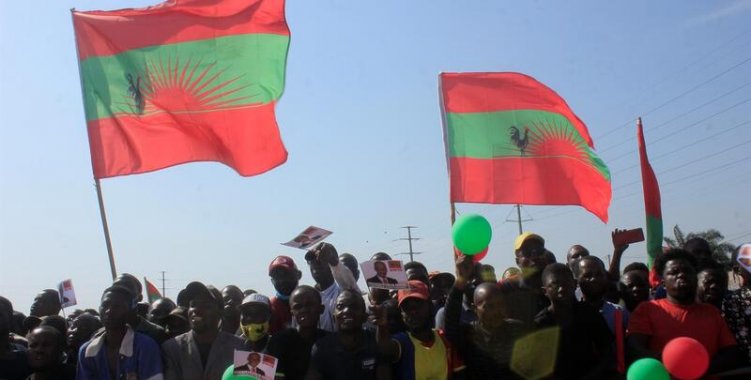On Thursday, Public Television of Angola announced that a delegation from the Commission for the Implementation of the Reconciliation Plan in Memory of the Victims of Political Conflicts (Civicop), led by the head of the Angolan "secret" was in Jamba, former military headquarters general of Jonas Savimbi, in search of bones of militants allegedly murdered by the founder of UNITA.
In a note from the Executive Secretariat of the Standing Committee of the Political Commission, the National Union for the Total Independence of Angola (UNITA) claims to have learned from its representatives at Civicop that this "did not gather its members" and that they were surprised by the past news by the Angolan public media.
"The team operating in that territory incurs technical, methodological, scientific violations, lack of transparency, because the sites are addicted and without the necessary witnesses within the framework of Civicop, who should validate the results of that operation", criticizes UNITA, main opposition party.
"The operation taking place at Jamba at the moment looks more like a political propaganda activity and not the search for the appeasement of spirits, in accordance with the principles embraced by Civicop, whose motto is: Embrace and Forgive", continues in the press release.
UNITA also appeals to Civicop to "recover the object of its creation, within the scope of the pacification of spirits and reconciliation and to resume the methodology already approved, in order to give credibility to the results of its creation".
On the other hand, he accuses the Angolan institutions of being "poorly served by interpreters, who are not reconciled with themselves and who are incapable of building a true Democratic State based on the rule of law, with a culture of dialogue and peace".
The main targets of the search, according to TPA, are members of the Chingunji family, Wilson dos Santos, around 80 women and children who were allegedly killed by Jonas Savimbi, founder of (UNITA), as well as other relatives of militants.
Created by presidential decree in April 2019, Civicop's mission is to draw up a general plan to honor the victims of the political conflicts that occurred in Angola, from 11 November 1975 to 4 April 2002.
UNITA and the Popular Movement for the Liberation of Angola (MPLA), the party in power since 1975, fought a long war of almost 30 years that ended with the death of Savimbi in February 2002, in an attack by government troops.
The President, João Lourenço, made an appeal for reconciliation and asked, in May 2021, for public apologies and forgiveness to the victims of political conflicts in Angola, in particular those that occurred on 27 May 1977, expressing his willingness to proceed with the delivery of certificates of death and bones.
However, the reconciliation initiative has been called into question in recent months, after some orphans denounced that forensic examinations carried out on the bones of victims of the 27th of May 1977 confirmed that they did not correspond to their relatives.
On 27 May 1977, an alleged attempted coup d'état, in an operation allegedly led by Nito Alves — then former Minister of Internal Affairs from independence (11 November 1975) until October 1976 — was violently repressed by the regime of Agostinho Neto, the first President of Angola.
Six days earlier, the Popular Movement for the Liberation of Angola (MLPA) had expelled Nito Alves from the party, which led the former minister and several supporters to invade the Luanda prison to free other sympathizers, while simultaneously taking control of the national radio station, a movement that became known as "fractionism".
Troops loyal to Agostinho Neto, with the support of the Cuban military, ended up establishing order and arresting the rebels, followed later by what became known as the "purge", with the elimination of the factions, with around 30,000 people being killed. , for the most part without any connection to Nito Alves, as stated by Amnesty International in various reports on the subject.







